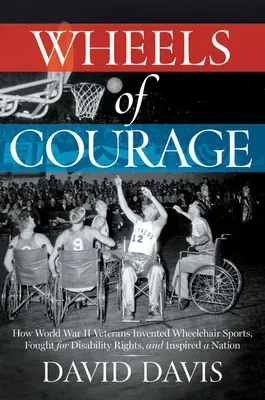Out of the carnage of World War II comes an unforgettable tale about
defying the odds and finding hope in the most harrowing of
circumstances. Wheels of Courage tells the stirring story of the
soldiers, sailors, and marines who were paralyzed on the battlefield
during World War II-at the Battle of the Bulge, on the island of
Okinawa, inside Japanese POW camps-only to return to a world unused to
dealing with their traumatic injuries. Doctors considered paraplegics to
be "dead-enders" and "no-hopers," with the life expectancy of about a
year. Societal stigma was so ingrained that playing sports was
considered out-of-bounds for so-called "crippled bodies." But servicemen
like Johnny Winterholler, a standout athlete from Wyoming before he was
captured on Corregidor, and Stan Den Adel, shot in the back just days
before the peace treaty ending the war was signed, refused to waste away
in their hospital beds. Thanks to medical advances and the dedication of
innovative physicians and rehabilitation coaches, they asserted their
right to a life without limitations. The paralyzed veterans formed the
first wheelchair basketball teams, and soon the Rolling Devils, the
Flying Wheels, and the Gizz Kids were barnstorming the nation and
filling arenas with cheering, incredulous fans. The
wounded-warriors-turned-playmakers were joined by their British
counterparts, led by the indomitable Dr. Ludwig Guttmann. Together, they
triggered the birth of the Paralympic Games and opened the gymnasium
doors to those with other disabilities, including survivors of the polio
epidemic in the 1950s.Much as Jackie Robinson's breakthrough into the
major leagues served as an opening salvo in the civil rights movement,
these athletes helped jump-start a global movement about human
adaptability. Their unlikely heroics on the court showed the world that
it is ability, not disability, that matters most. Off the court, their
push for equal rights led to dramatic changes in how civilized societies
treat individuals with disabilities: from kneeling buses and curb
cutouts to the Americans with Disabilities Act of 1990. Their saga is
yet another lasting legacy of the Greatest Generation, one that has been
long overlooked. Drawing on the veterans' own words, stories, and
memories about this pioneering era, David Davis has crafted a narrative
of survival, resilience, and triumph for sports fans and athletes,
history buffs and military veterans, and people with and without
disabilities.

